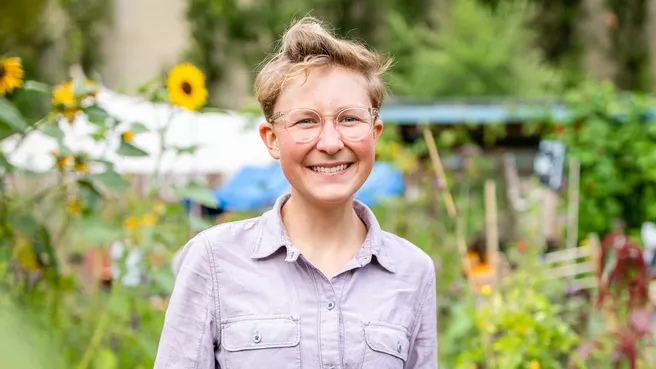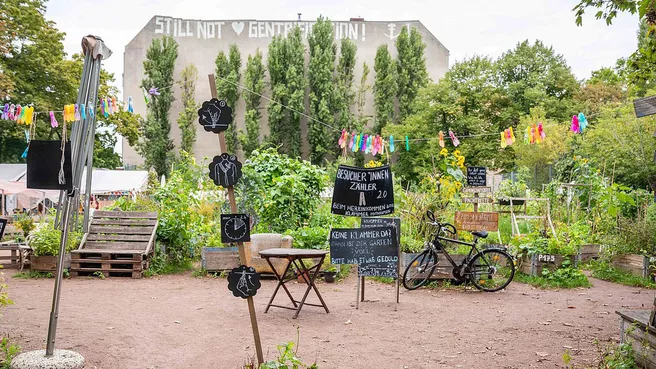In the coming decades, more than two-thirds of the world's population will live in urban regions. Urbanization brings both challenges and opportunities for society. Challenges include loss of green space, public health issues, and harm to the coexistence of people and nature. These aspects of urbanization are linked to the loss of ecosystem services - the properties and processes of ecosystems that benefit us as a society and ultimately contribute to our well-being.
Urban gardens can counteract this development. From an ecological perspective, these ecosystems can provide habitat for plant and animal species and their complex interactions, and also provide cooling mechanisms to reduce urban heat. From a social perspective, they can provide a place for people to relax and unwind, reconnecting with food and nature. Understanding how ecosystems such as gardens function is therefore of paramount importance to science and society.
However, we still know relatively little about how these ecosystems function and how ecological and social factors interact in these systems to produce such benefits. Researchers therefore want to find out what specific environmental structures and social mechanisms need to be in place to harness the potential of urban gardens and to create and enhance these habitats for people and nature.
After the lecture, all interested parties (on site and also via Zoom) are invited to put their questions to the speaker. The Q&A session will be moderated by TUM professor Sara Leonhardt.
Lecture date:
Monday, Dec. 13, 2021, 7:00 p.m.
live via Zoom (Keyword: 588641).
About the person:
Dr. Monika Egerer researches the ecology and management of production-oriented ecosystems in and around cities. She pursues an interdisciplinary research approach that analyzes connections between biodiversity, environmental and climate protection, ecosystem services and social-ecological issues in urban agricultural systems. A strong focus is on the role of insects and plant biodiversity in urban ecosystems, specifically in the context of habitat management, urbanization and climate change.
Prof. Egerer studied Environmental Studies at the University of California, Santa Cruz for her PhD. After several research stays in Australia, she joined the Institute of Ecology at the Technical University of Berlin as an IPODI postdoctoral fellow in 2019. In 2020, Prof. Egerer was appointed to the professorship for Urban Productive Ecosystems in the TUM School of Life Sciences.
About the series:
The lecture series "TUM@Freising - Science Explained for ALL" is organized by the Technical University of Munich together with the City of Freising. At regular intervals, the TUM School of Life Sciences presents its research in the form of a lecture of interest to lay people. A subsequent discussion with the audience is expressly desired after each lecture. The lecture series is intended to give the citizens of Freising direct access to the scientific work at the Weihenstephan campus and offers the scientists public input for their research work.
Editing:
Susanne Neumann
TUM School of Life Sciences
Press and Public Relations
Scientific Contact:
Prof. Dr. Monika Egerer
TUM School of Life Sciences
Professorship for Urban Productive Ecosystems
Tel. +49 8161 71 4756
monika.egerer(at)tum.de

